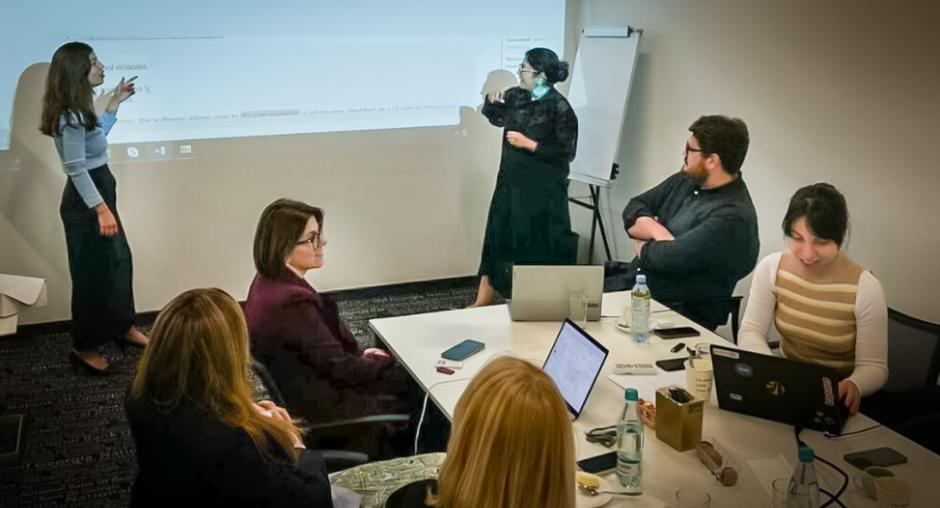Spotting “red flag indicators” of virtual assets: OSCE builds capacity of the National Bank of Georgia

From 15 to 18 April, the Office of the Co-ordinator of OSCE Economic and Environmental Activities (OCEEA) conducted a workshop aimed at increasing the capacity of the National Bank of Georgia to spot virtual assets “red flag indicators”. Held in Tbilisi and hosted by the National Bank of Georgia, the workshop aimed to enhance the National Bank of Georgia's ability to regulate VASP activity within the country.
The event provided an opportunity to discuss the red flags related to virtual assets such as transaction size and frequency, patterns, technological features that increase anonymity of virtual assets, and geographical risks. Throughout the workshop, OSCE experts and officials from the National Bank of Georgia analyzed the regulatory landscape and brainstormed solutions on compliance measures aimed at mitigating the risks of money laundering and financial crime involving virtual assets.
"The OSCE's support in enhancing the capacities of the National Bank of Georgia team and developing an anti-money laundering and combating the financing of terrorism supervisory (AML/CFT) framework for Virtual Asset Services has been invaluable,” said Eka Goglidze, Head of International Sanctions Implementation and Inspection and Offsite Supervision of Virtual Asset Service Providers Division at the National Bank of Georgia. “With the assistance of the OSCE and involvement of highly qualified experts, several guidelines are being developed to facilitate effective monitoring of virtual asset transactions, to address the challenges in this emerging sector and to strengthen the overall AML/CFT supervision framework in the country. Given the novelty of oversight in this area globally and the scarcity of guidelines, the support from the OSCE is particularly important.”
Attendees actively participated in knowledge-sharing sessions, interactive discussions, and collaborative exercises with the goal of developing best practices, regulatory frameworks, and efficient strategies to foster transparency and combat illicit activities conducted with virtual assets and cryptocurrencies in Georgia.
The workshop is part of an OSCE extra-budgetary project focused on innovative policy solutions to mitigate money-laundering risks associated with virtual assets. Tailored to support OSCE participating States, the project aims to increase the capacities of national authorities in mitigating money laundering risks of virtual assets and cryptocurrencies. The project is funded by Germany, Italy, Poland, Romania, the United Kingdom and the United States.
